Audi Warranty Unpacked: What's Covered, What's Not, and How to Navigate Your Claims
Understanding Your Audi Warranty: The Foundation of Peace of Mind
Before we dive into specifics, it's essential to grasp the different types of Audi warranties you might encounter. The most common is the New Vehicle Limited Warranty, which typically covers your Audi for a set period, usually 4 years or 50,000 miles, whichever comes first. This warranty is designed to protect against defects in materials or workmanship from the factory. If you've purchased a pre-owned Audi from a dealership, it might come with an Audi Certified Pre-Owned (CPO) Warranty, which extends coverage beyond the original factory warranty. Additionally, many owners opt for extended warranties, either from Audi directly or third-party providers, for continued protection after the initial coverage expires. For the purpose of this guide, we'll primarily focus on the New Vehicle Limited Warranty, as it sets the baseline for what Audi deems a manufacturer's responsibility.
Knowing the specifics of your warranty document – its duration, mileage limits, and exclusions – is your first line of defense. Always keep your warranty booklet handy and familiarize yourself with its terms. This foundational knowledge empowers you to confidently approach a dealership with a potential warranty claim, knowing your rights and the scope of your coverage.
The Golden Ticket: Common Repairs Audi's Warranty Usually Covers
When your Audi develops an issue that stems from a manufacturing defect, the new vehicle limited warranty is your best friend. Here are some of the common repairs and components that Audi's warranty typically covers:
- Engine Component Failures: Issues like unexpected oil leaks from seals (if not due to wear), timing chain or tensioner problems (premature failure), internal engine component malfunctions (e.g., pistons, rods) are usually covered. These are critical components whose premature failure points to a defect.
- Transmission Malfunctions: If your Audi's transmission starts slipping, shifting erratically, or showing error codes related to internal component failure, the warranty will generally cover the diagnosis and repair or replacement of the transmission.
- Electrical System Woes: Modern Audis are packed with sophisticated electronics. Malfunctioning MMI (Multi Media Interface) systems, faulty sensors (e.g., oxygen sensors, ABS sensors), power window motors, central locking system failures, or dashboard warning lights indicating a system defect are typically covered.
- Suspension Component Defects: While wear items like shocks can degrade over time, premature failure of components like control arms, ball joints, or bushings dueasing from a manufacturing defect would generally be covered. If you hear unexpected clunking or feel abnormal looseness that's not due to impact damage, it's worth investigating.
- Braking System (Non-Wear Items): The warranty usually covers major braking system components like the master cylinder, ABS module, brake lines, or calipers if they fail due to a defect. However, it specifically excludes wear items like brake pads and rotors.
- HVAC System Malfunctions: Problems with your air conditioning compressor, condenser (if defect-related), evaporator, heater core, or blower motor that lead to a loss of heating or cooling are typically covered under warranty.
The key here is 'manufacturing defect.' If the issue can be traced back to how the car was made or assembled, you're generally in good hands.
Navigating the Nuances: When Claims Get Complicated (The Grey Areas)
Not every potential issue falls neatly into a 'covered' or 'denied' category. There are several 'grey areas' where the determination can depend on various factors, requiring careful communication and sometimes a bit of persistence from the owner.
- Premature Wear of Certain Components: While wear and tear items are generally excluded, sometimes a component considered 'wearable' fails significantly earlier than expected. For example, if a shock absorber blows out at 20,000 miles on a new car, it might be argued as a defect rather than typical wear. Similarly, certain seals or gaskets that aren't typically replaced until much higher mileage could be covered if they fail very early.
- Minor Rattles and Squeaks: These can be notoriously difficult to diagnose and attribute to a specific defect. While a persistent, unusual noise might indicate a loose part that *could* be covered, general cabin noises often fall into a subjective area. Documentation of the noise and its consistency can help your case.
- Software Glitches vs. User Error: Many modern Audi features rely on complex software. If a feature malfunctions due due to a software bug, it's generally covered. However, if the issue stems from incorrect user input, settings, or third-party device interference, it may not be. Demonstrating the problem consistently and clearly is crucial.
- Cosmetic Blemishes: Minor paint imperfections or interior trim issues, if noticed and reported very early in ownership, might be covered as factory defects. However, if reported much later, or if there's any evidence of external damage, it becomes much harder to claim.
In these situations, detailed documentation, a clear explanation of the issue, and a good relationship with your service advisor become invaluable. Don't be afraid to politely advocate for your position.
The 'No-Go' Zone: Repairs Audi's Warranty Typically Denies
Understanding what your Audi warranty does NOT cover is just as important as knowing what it does. These exclusions are standard across most manufacturers and are designed to differentiate between manufacturing defects and normal ownership responsibilities:
- Routine Maintenance and Wear & Tear Items: This is the biggest category. Your warranty does not cover oil changes, tire rotations, air filter replacements, spark plugs, fluid top-offs, wiper blades, light bulbs (unless an LED assembly fails due to defect), or brake pads and rotors. These are consumables that degrade with normal use and mileage.
- Damage from Accidents, Misuse, or Neglect: Any damage resulting from collisions, off-roading, racing, or using the vehicle for purposes it wasn't designed for is explicitly excluded. This also includes damage from improper fuel (e.g., putting regular gas in a premium-only engine), incorrect fluids, or lack of proper maintenance (e.g., engine sludge from skipped oil changes).
- Environmental Damage: Acts of nature like hail, floods, fires, or tree damage are not covered by your vehicle's manufacturer warranty. This type of damage typically falls under your comprehensive auto insurance policy.
- Aftermarket Modifications: If you've modified your Audi with non-Audi approved parts (e.g., performance tuning, aftermarket suspension, larger wheels), and a component fails as a direct result of that modification, Audi can deny the warranty claim for that specific failure. The Magnuson-Moss Warranty Act protects consumers from blanket denials for modifications, but the burden of proof is often on the owner to show the modification did not cause the failure.
- Cosmetic Damage (Post-Delivery): Scratches, dents, dings, paint chips, or interior damage (rips, stains) that occur after the vehicle leaves the dealership are generally not covered, as they are considered external damage rather than manufacturing defects.
These exclusions are important to remember to manage your expectations and avoid frustration when a claim is denied. Always refer to your specific warranty document for a definitive list of exclusions.
Your Power Play: Tips for Maximizing Your Audi Warranty Coverage
Being a proactive and informed Audi owner can significantly improve your experience with warranty claims. Here are some practical tips:
- Adhere to the Maintenance Schedule: This is non-negotiable. Follow Audi's recommended service intervals meticulously, using genuine Audi parts or approved equivalents. Keep all service records, including dates, mileage, and services performed, whether you go to an Audi dealer or an independent shop. This is crucial proof against claims of neglect.
- Address Issues Promptly: Don't wait! If you notice a strange noise, a warning light, or an unusual sensation, schedule an appointment with your Audi service center as soon as possible. Delaying can sometimes exacerbate a problem, potentially complicating a warranty claim.
- Document Everything: Before going to the dealer, take notes of the issue: when it started, what exactly happens, and under what conditions. If possible, take photos or videos of warning lights or visible problems. This detailed information helps the technician diagnose the problem accurately and supports your claim.
- Understand Your Warranty Document: Read it, highlight it, and keep it accessible. Knowing the exact terms, duration, and exclusions empowers you to discuss your claim intelligently with the service department.
- Communicate Clearly and Respectfully: While frustrating issues can arise, maintaining a polite and clear demeanor with your service advisor and technician is always best. Clearly explain the symptoms, refer to your documentation, and ask for explanations if you don't understand their assessment.
- Escalate if Necessary: If you feel a valid warranty claim is being unfairly denied, don't give up immediately. You can request to speak with the service manager, then the general manager. If still unresolved, consider contacting Audi Customer Relations directly. They have the authority to review dealership decisions.
By following these best practices, you'll be well-equipped to navigate the world of Audi warranties and ensure your luxury vehicle receives the care it deserves.
Conclusion
Navigating your Audi's warranty doesn't have to be a confusing ordeal. By understanding the types of coverage, recognizing common covered and denied repairs, and employing smart ownership practices, you can confidently protect your investment. Remember, your Audi warranty is there for manufacturing defects, not for normal wear and tear or owner-induced damage. Adhering to maintenance schedules, keeping meticulous records, and communicating effectively with your service center are your strongest allies. Armed with this knowledge, you're now better prepared to enjoy the Audi experience with true peace of mind, knowing exactly what to expect should an unexpected repair arise.Where can I find my VIN?


